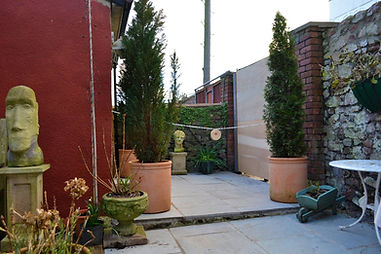
- Closed Since 2018 -
Website Content As Was
We were Bristol's last remaining men's residential rehab
Contact info: Chandosjames1@gmail.com
- Closed Since 2018 -
Website Content As Was
House Rules & Expectations
'Look after the house and the house will look after you'

Mutually Agreed Aims
If the fundamental goal of rehabilitation is to help people to find satisfaction in living with self and others, instead of addictions that supplement low self esteem, then we the helpers must support clients in giving up their need for omnipotence and control.
This is best achieved via sustained exposure to a new experience of a peer group identity:
-
Stopping destructive, unhealthy behaviours and keeping them stopped.
-
Clients recognising the therapeutic value of support


Select to enlarge journal example
The aims of the programme will be achieved through:
Group therapy
1:1 key-working
Complementary therapies
Talks and workshops
Written assignments
Participation in therapeutic duties and house-based activities.
Expectations of Client Conduct
It would not be possible to run a safe therapeutic environment, if we had a list of expectations which did not include a set of basic safety needs, community obligations and personal responsibilities. Boundaries are helpful if intelligently and sensitively applied.
Individual client choice is inevitably somewhat reduced in a structured setting. Therefore it is essential that the choice people make in coming to Chandos is an appropriately informed one and that the few rules that we have should be adhered to strictly. Breach of a House Rule may result in immediate discharge!
Community Ground Rules
Negotiation and Fairness
-
Seeking mutually satisfying resolutions to conflict
-
Accepting change
-
Being willing to compromise
Honesty and Accountability
-
Accepting responsibility for self
-
Acknowledging past use of control
-
Admitting being wrong
-
Communicating openly and truthfully
Non-threatening Behaviour
-
Talking and acting so that each resident feels safe and comfortable in expressing themselves
-
Ensuring that nobody feels physically intimidated and insecure in their environment
Individual Responsibility
-
Being a positive, non-violent role model for your peers
-
Being mindful of others and their welfare
Negotiation and Fairness
-
Seeking mutually satisfying resolutions to conflict
-
Accepting change
-
Being willing to compromise
Honesty and Accountability
-
Accepting responsibility for self
-
Acknowledging past use of control
-
Admitting being wrong
-
Communicating openly and truthfully
Non-threatening Behaviour
-
Talking and acting so that each resident feels safe and comfortable in expressing themselves
-
Ensuring that nobody feels physically intimidated and insecure in their environment
Individual Responsibility
-
Being a positive, non-violent role model for your peers
-
Being mindful of others and their welfare

House Rules
-
No possession or use of alcohol and/or other drugs, on or off the premises
-
No harm to self or to others
-
Guests or visitors who are known to be in breach of Rule 1 must not be let into the house by residents
-
No theft or wilful damage of property
-
No physical violence, or threats of
-
Any resident with a history of or suffering from an active eating disorder, should discuss it with their keyworker
7. Any prescribed and non-prescribed medicines must be discussed with staff before they are taken
8. Residents will not enable / cover up / collude with others who break the House Rules. To help you understand the process and consequences of enabling, a pamphlet entitled ‘Enabling in Treatment’ is available from staff. Please ask for a copy
9. No overnight absence without prior permission of staff
10. No smoking anywhere inside except in the designated area and at permitted times
